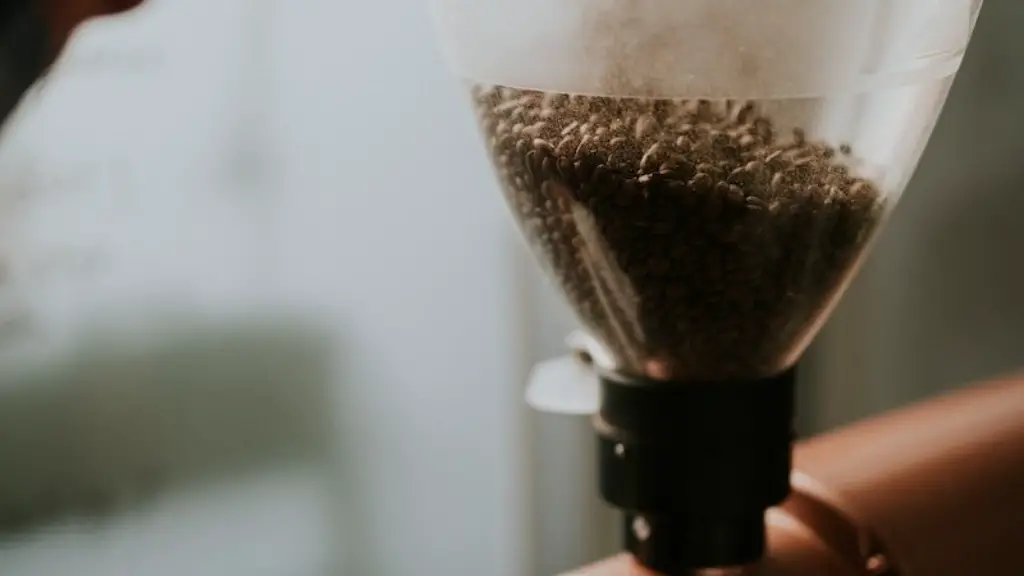Pain Management
Pain is the most common symptom associated with wisdom teeth removal. For some people, however, pain can be reduced with the help of a good night’s sleep, over-the-counter pain relievers, or prescription pain medications taken before and after surgery. It is important to carefully follow all special instructions from your dentist about when and how to take these medications in order to minimize your pain and ensure that you heal properly.
As with any procedure, it is important to speak with your dentist about the specific pain management techniques you will use for your wisdom teeth removal. Some dentists may recommend the use of ice, anti-inflammatory medications, herbal teas, or over-the-counter painkillers to help manage the discomfort. Some people may even opt for a combination of these treatments.
While the pain of wisdom teeth removal can be very uncomfortable in the days following the procedure, it is important to bear in mind that the pain should not be debilitating. Pain levels should decrease steadily over time and should eventually become manageable without the need for medication. In the event that the pain persists after the procedure, it is important to consult with your dentist immediately.
Caffeine Intake
When it comes to consuming caffeine after wisdom teeth removal, the short answer is “yes, but in moderation”. If you are experiencing pain, don’t think that consuming a cup of coffee will dull the sensation and reduce the discomfort- in fact, the opposite could be true. Caffeine can interfere with the body’s natural pain-relieving mechanisms and can even cause further inflammation.
Caffeine can also dry out the mouth and interfere with the healing process. To avoid further irritation and dehydration, it is recommended to consume only small amounts of caffeinated beverages- no more than one or two eight-ounce cups per day- and to avoid caffeinated drinks altogether on the day of the surgery.
In addition to avoiding caffeinated drinks directly after the procedure, it is also important to reduce your intake of sugary treats and processed, packaged snacks. While it may be tempting to submit to cravings while healing from surgery, sugary foods and drinks may prolong the healing process, put additional strain on your immune system and increase the risk of inflammation and infection.
Keeping Hydrated
The best way to avoid dehydration or further irritation in the days following a wisdom teeth extraction is by staying hydrated. Drinking plenty of water and avoiding sugary drinks, soda, and alcohol can help to keep your body hydrated and reduce the severity of your symptoms. Additionally, your dentist may recommend an enhanced hygiene routine that includes rinsing your mouth with a warm saline solution to help sooth the site of the extraction.
It is also important to keep an eye on your sodium and electrolyte levels as they can drop quickly during recovery. Eating light, nutritious meals high in fiber and protein can help to replenish lost levels and reduce inflammation. Foods such as yogurt, fish, and vegetables are all excellent sources of electrolytes, vitamins, and minerals and can help your body heal after surgery.
Finally, make sure to get plenty of rest. Because the body is already stressed from the wisdom teeth removal and healing process, it is important to give your body the opportunity to rest and replenish itself. Moderating your physical activity and avoiding strenuous activities can help to reduce the risk of infection and speed up the healing process.
Focusing on Healing
The recovery period following wisdom teeth removal can vary from person to person, but one thing is certain: the sooner you begin to take care of yourself after the procedure, the more quickly and smoothly you will likely recover. Remember to focus on healing and getting plenty of rest, eating light and healthy meals, drinking lots of water, and avoiding caffeine and sugary treats.
Your dentist is your best guide when it comes to taking care of your teeth after wisdom teeth removal. Make sure to get regular follow-up appointments and to adhere to their instructions closely. If you experience any abnormal pain or signs of infection, be sure to contact your dentist immediately. With the proper care and attention, you can get back to feeling your best in no time.
Anticipating the Results
When it comes to the final results of wisdom teeth removal, it is important to manage your expectations. While the recovery period may be painful and uncomfortable, the overall results should ultimately be worth the trouble. The removal of wisdom teeth can help to improve your oral health and reduce the risk of future complications.
There is also the added benefit of affecting your appearance. The removal of wisdom teeth can improve your overall face shape by removing overcrowding and increasing the aesthetic appeal of your smile. This may make all the difference when it comes to feeling confident, attracting potential partners, and making a lasting first impression.
Finally, remember that wisdom teeth removal is a personal journey. Your results may be different than those of your friends and family. While it’s easy to compare, it is important to keep in mind that every person’s recovery is unique and the results may not be identical. In the end, it’s important to focus on your own healing and to be patient as you await the final product.
Preparing for Surgery
Preparing for wisdom teeth removal involves more than simply taking the necessary precautions in the days leading up to the surgery. In order to ensure a smooth and successful procedure, it is very important to establish a plan that includes adequate rest and proper nutrition before the surgery. Eating healthy and avoiding sugary and processed foods can reduce the risk of complications during the procedure.
It is also important to let your dentist know about any other medical conditions you may have, as this may impact the success of the surgery. For example, if you take any medications regularly it may be necessary to adjust your dosing regimen or to avoid certain drugs altogether during the recovery process. Your dentist can work with you to determine which medications and pain management techniques can be safely utilized during the healing period.
Finally, it is important to plan ahead for activities after the procedure. Since the recovery period can range from days to weeks, it is necessary to plan ahead to make sure that you will have ample time to rest and recover without having to rush back to your usual activities. While this may require some adjustment in the short-term, it is important to remember that putting your health first is always the best option.
Taking Time for Family and Friends
Getting support from family and friends is one of the most important aspects of healing after wisdom teeth removal. While the physical recovery period may be difficult, the emotional and mental impact of the surgery can be just as difficult, if not more so. Don’t be afraid to ask for help and take the time to connect with the people who care about you.
Try to maintain a positive attitude throughout the recovery process and focus on activities that bring you joy. If you can, try to keep up with your regular routines and hobbies- even if that just means taking it easy with a movie night or doing some light reading. It is important to remember that you are stronger than you think and that you will get through this.
Take your time and listen to your body. As difficult as it may be in the days and weeks following surgery, it is important to trust that your body knows best. When it comes to healing from wisdom teeth removal, give yourself the grace and space to take the necessary steps to make sure your recovery is as smooth and successful as it can be.





